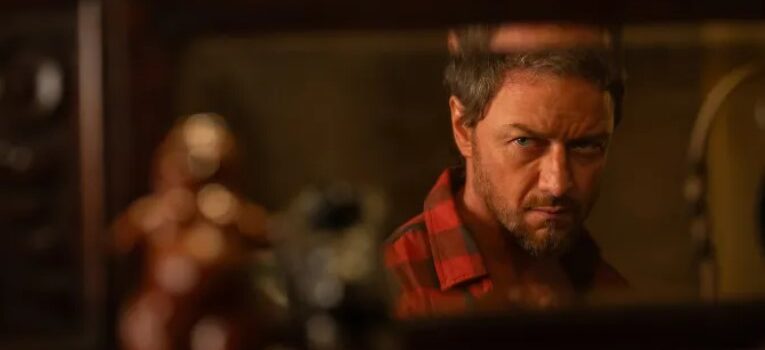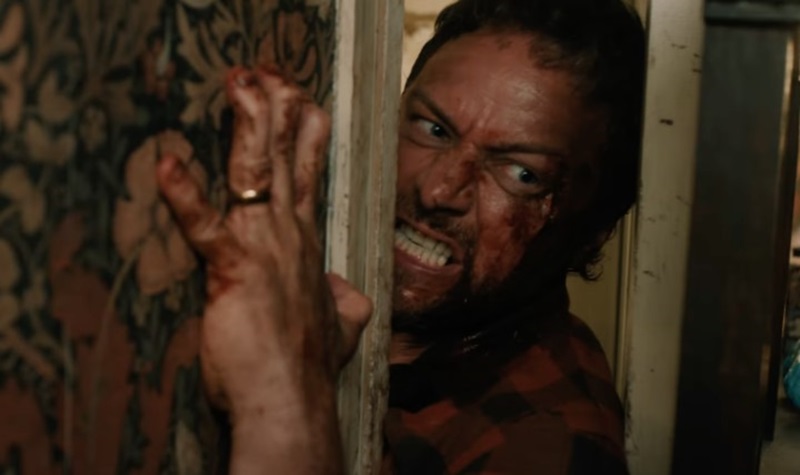James Watkins’ Speak No Evil brilliantly avoids the pitfalls of being a tedious remake, drawing inspiration from films like The Strangers and Midsommar while grounding itself in the tension-filled atmosphere. This psychological horror-thriller offers a fresh take, exploring human relationships and the sinister undertones that accompany them, all set against an idyllic Italian vacation and the quaint Anglo countryside.
The film follows two families who meet while vacationing in Italy. Paddy, played by a muscular James McAvoy, and his wife Ciara (Aisling Franciosi) invite their new friends—the Dalton family—to visit them at their remote home. Paddy and Ciara’s son, Ant (Dan Hough), is mute, adding an eerie layer to the already unsettling dynamic. The Dalton family, led by patriarch Ben (Scoot McNairy), along with his wife (Mackenzie Davis) and their daughter Agnes (Alix West Lefler), initially feel a warm connection to their hosts. However, it’s soon revealed that Ben and his wife are grappling with deep marital issues, which lends a sense of unease to their decision to visit Paddy’s family in the West Country.
From the moment the Daltons arrive at the home, strange occurrences begin to unfold. Ant, the mute child, appears to attempt communication in unsettling ways, and when the Dalton’s daughter is found sleeping in bed with Paddy and Ciara, the family’s concerns escalate. McNairy’s character, Ben, finds himself torn between wanting to retrieve a forgotten toy for his daughter and heeding the warning signals that something more sinister is at play. The tension mounts as they try to leave, only to be manipulated into staying longer.
The film leans into the home invasion tropes reminiscent of The Strangers, trapping the Daltons in the house as they fight for survival. However, Speak No Evil balances this tension with moments of dark humor, thanks to the screenplay co-written by Christian Tafdrup, Mads Tafdrup, and James Watkins. Audiences are drawn into the harrowing narrative, experiencing a rollercoaster of emotions as the film deftly switches between suspense, horror, and humor. In screenings, the audience’s reactions—screams quickly followed by nervous laughter—testify to how well this balance is executed.
At its core, Speak No Evil is more than a standard horror film. It delves into the crumbling marriage between Ben and his wife, exploring power dynamics, trust, and the primal instinct to protect one’s family. These themes are rooted in the Danish original, which focused heavily on social dynamics and tension within familial relationships. Watkins’ direction ensures that these undercurrents never feel overshadowed by the horror elements, instead enhancing the psychological depth of the film.
Ultimately, Speak No Evil keeps audiences on the edge of their seats throughout its two-hour runtime, delivering plenty of jump scares and palpable anxiety. Watkins has crafted a compelling narrative that entertains while offering a chilling exploration of human nature and the dark secrets that lie beneath the surface of seemingly ordinary interactions.
Grade: B-


